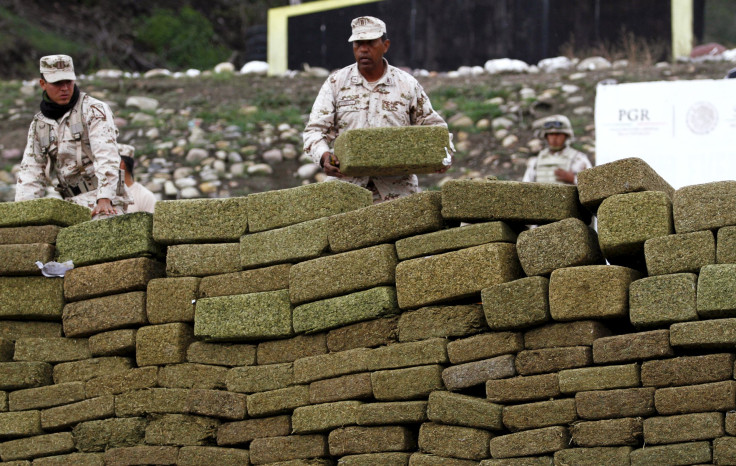Legal Marijuana In The United States Hurting Mexican Drug Cartels, Farmers

Small-scale Mexican marijuana farmers say the loosening of marijuana laws across the U.S. has increased competition from growers north of the border and could put them out of business. The Mexicans used to get $100 per kilogram for their illegal crops, but that price has crashed to $30 per kilogram in the last four years, the Los Angeles Times reported Wednesday.
"I've always liked this business, producing marijuana," one 50-year-old farmer from the northwestern state of Sinaloa told the LA Times. This season’s crop will be his last, he said.
The price declines have prompted a notable decline in marijuana production in Mexico, along with a drop in illegal trafficking to the U.S., according to officials on both sides. Just six years ago, Mexico provided two-thirds of the marijuana consumed annually in the U.S., according to the Rand Corp. think tank’s drug policy research center.
The U.S. and Mexican governments have tried for decades to reduce marijuana cultivation by paying farmers to grow legal crops and periodically destroying marijuana fields. Mexican officials said they were on pace to eradicate approximately 12,000 acres of marijuana in 2015, down from the 44,000 destroyed in 2010, according to the LA Times.
In 2014, U.S. Customs and Border Protection, the agency charged with intercepting trafficked drugs, seized approximately 1,085 tons of marijuana at the border. Seizures rates have floated around 1,500 tons over last four years – an amount that is only a fraction of what actually makes it into the U.S.
Meanwhile, the legal market for marijuana in the U.S. grew from $1.5 billion to $2.7 billion between 2013 and 2014, according to the ArcView Group, a cannabis industry investment and research firm in Oakland, California. But that figure still is dwarfed by illegal sales of pot.
This has caused Mexican drug cartels to shift their trade away from marijuana toward illicit hard drugs like heroin, methamphetamine and cocaine, experts said. And that’s bad news for the small-scale Mexican farmers. "People don't want to abandon their illicit crops, but more and more they are realizing that it is no longer good business," Juan Guerra, Sinaloa's agriculture secretary, told the LA Times.
© Copyright IBTimes 2025. All rights reserved.





















